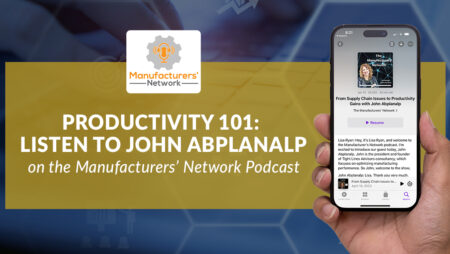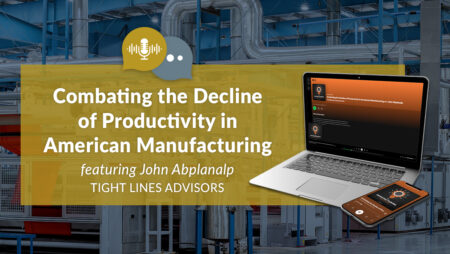
Look inward instead of outward for true Corporate Social Responsibility in your company.
Corporate Social Responsibility has become an important consideration for today’s businesses as consumers are becoming increasingly adamant that the brands they chose behave responsibly towards the environment and humanity. Traditionally, corporate social responsibility or “CSR” has centered around investing in something sustainable, funding a charitable cause, or participating in philanthropic ventures. What is potentially far more impactful and impressive is to increase the efficiency of the production process to consistently increase quality units of output with fewer units of input, and therefore fewer material losses in the process. This by definition is the mission of productivity, as well as the definition of sustainability. Productivity and sustainability complement each other, avoiding approaching sustainability as an “add on” to operations and profitability.
Example: A traditional method of reducing material loss and the environmental footprint vs. the productivity model and process
A company produces plastic bottles and is burdened with its increasing level of material loss and related costs. What’s worse, there is a magnifying glass on their industry as ESG (Environmental, Social, Governance) advocates have targeted their niche with additional scrutiny. The company’s first thought is to make the walls of the bottles thinner to reduce the amount of plastic they use, which requires an initial investment in process & machine modification, thin wall tooling, and the possibility of increased costs in plastic formulas that will sustain product quality with the modified container.
Inherently, they would have to run their modified production lines at a different rate and still retain the same process inefficiencies that were present prior to the change, thus adding considerable cost to the operation. In essence, their investment in thin-walled products becomes more of a positive press initiative vs. a long-term solution and investment in the future.
The Productivity & Efficiency Method to Sustainability
Helping businesses achieve long-term sustainability through efficiency and productivity improvement, instead of investing to be sustainable, yields more positive results. In the above example, a better solution is to focus on improving the existing process, a process that has been producing quality products but would benefit from an internal review and action plan to achieve the 3 tier goal of sustainability while driving profitability. A deeper analysis will help pinpoint where the material is being lost and steps to take to reduce the rate by addressing key productivity factors such as downtime, changeover time, maintenance, and material handling.
Investing time rather than money in the process also rewards the company with benefits like power savings, employee productivity, and the mitigation of risk of degrading efficiency. Improving the process also organically engages everyone in the organization allowing them to make their own contribution to corporate social responsibility while making their shift easier and more productive.
This snowball effect will quickly move your organization towards peak operational efficiency and corporate social responsibility; CSR that may be noticed by your customers and consumer watchdogs that elevate your brand as an environmentally and socially responsible leader in your industry.
About Tight Lines Advisors
The Tight Lines Advisors method reveals hidden inefficiencies in company processes that may lead to nonconformance issues down the line, and then identifies process improvement measures that result in little or no downtime. The diversity of markets we work in has allowed us to pinpoint problems and solutions that keep companies up and running while cost savings process improvements are implemented. In the end, our clients move forward with environmentally and socially responsible products and processes that signal they are the truly the leader in their industry. Contact Tight Lines Advisors today to take your company’s Corporate Social Responsibility practices to the next level by improving your existing manufacturing process.




